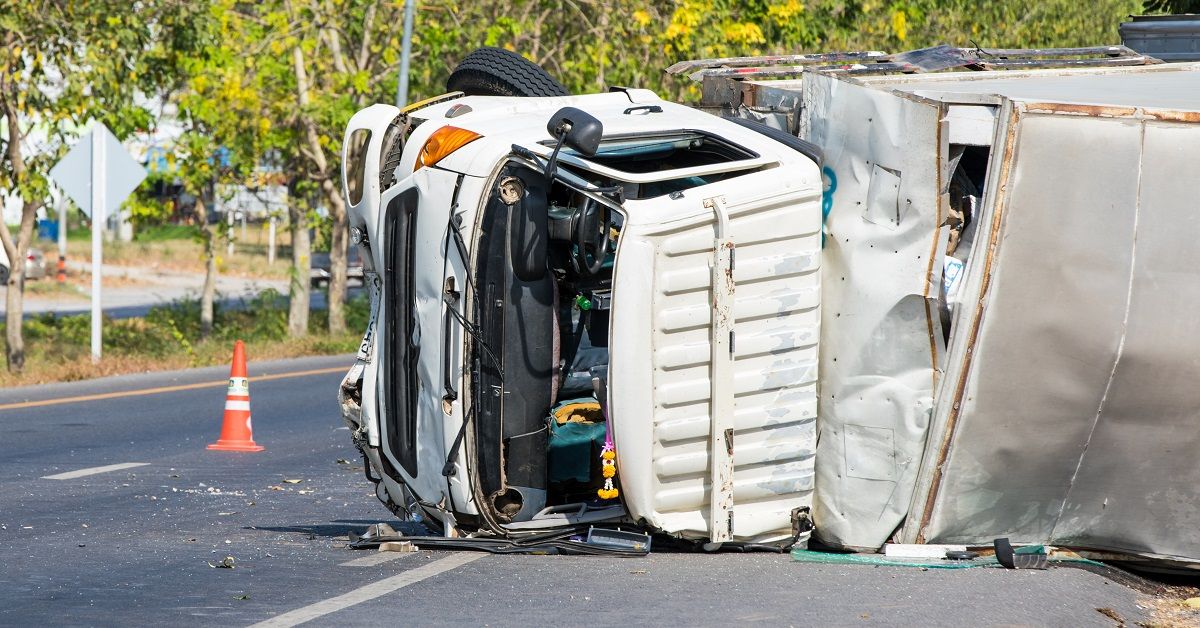
Everything in a truck accident case hinges on the question of fault. That is, who was responsible for the accident and, as a result, who is responsible for paying for the damages caused by the accident?
With trucking accidents, this can be a complicated question.
In most accidents involving only passenger vehicles, it’s generally a question of which driver was at fault. Generally, one of the drivers is responsible, or the drivers may share in the fault.
However, several parties may be at fault in truck accidents. As such, the attorneys at Colombo Law won’t just investigate the truck driver when pursuing compensation in your case. We also investigate the trucking company, the load broker, a parts manufacturer, the loading company, and any other parties that may be at fault.
How Our Trucking Accident Lawyers Can Help
If you have been injured in a truck accident in Ohio, Colombo Law is here to help. We have an extensive track record of representing truck accident victims, and we will evaluate your case during a free consultation.
Below we take a look at the parties that are most commonly at fault in trucking accident claims. If you have any questions about who may be liable in your case, please contact Colombo Law in Columbus today.
Truck Driver Liability
In most truck accident cases, fault begins with the truck driver. This could be due to negligence such as:
- Distracted driving
- Speeding
- Running a red light or stop sign
- Road rage
- Tailgating
- Falling asleep at the wheel (usually in violation of hours of service regulations)
This is by no means a full list, but it does give you a good sense of the kinds of driver errors that can result in semi truck collisions. However, even when one or more of these factors has been identified as the cause of the accident, it might not tell the whole story.
Trucking Company Liability
Take the example of falling asleep at the wheel. It might seem that if a driver falls asleep while driving and causes an accident, then the driver, and the driver alone, is responsible for the damages and injuries that have occurred. However, what you might not know is that truck drivers are required by law to drive only for a certain number of hours per day.
Truckers are only allowed to drive for 11 hours in a single shift, and they must take a 30-minute break after 8 hours of driving. However, trucking companies have been known to encourage or pressure their drivers to bend or fully break these laws. In some instances, if truck drivers refuse to violate these laws they will be fired by rogue trucking companies.
More time on the road equals more money. As a result, trucking companies sometimes make a deliberate choice to risk the safety of their drivers and others on the road for the sake of profit.
Trucking company negligence often extends beyond violating hours of service regulations. The carrier may also fail to perform thorough background checks on the drivers it employs.
Inexperienced drivers, drivers who have been convicted of DUI, and drivers with previous accidents on their records – to name a few – have no business behind the wheel of a big rig, but their services come cheaper than experienced, safety-conscious truckers. Trucking companies know this, and they often make the decision to put safety second to saving money.
Trucking companies (referred to as “motor carriers” by the federal regulations) are required to conduct periodic inspections of their trucks to make sure that they are properly and safely maintained. Truck drivers are required to inspect their trucks both pre-trip and post-trip and bring any maintenance issues to the attention of the motor carrier. Unfortunately, many trucking companies will not do their periodic inspections and choose not to repair maintenance issues found by the drivers because they don’t want to take the truck off the road by putting it in the shop. When an improperly maintained truck causes a crash, the trucking company may be at fault.
Liability of a Parts Manufacturer
Like trucking companies, parts manufacturers also have a duty of care when managing their businesses. Principally, this duty comes in the safe design, manufacture, labeling, and distribution of their products.
Unfortunately, defective vehicle parts are a common factor in trucking accidents. Tire blowouts, brake failures, and other defects present a serious risk not only to truck drivers but other motorists and bystanders.
Parts manufacturers may be aware of a defect but fail to initiate a recall. Like trucking companies, they are looking out for their bottom line more than public safety.
Liability of the Company That Loaded the Truck
The workers who load semi trucks usually work for a different company than the carrier transporting the goods. Nonetheless, they are responsible for ensuring that cargo is properly loaded on the truck and secured so the load is balanced for transit. Many times the company that loads a trailer will place a lock and seal on the trailer so the driver is not permitted to inspect the cargo to ensure it is properly loaded to prevent shifting during transit.
If they fail to uphold their duty, the company could be held responsible for a truck accident. Examples of liability in these situations include vehicle rollovers due to a shifting load or cargo that falls out of the trailer and into the path of vehicles traveling behind the truck.
Get Help with Your Trucking Accident Claim
Few accident cases are as complicated as truck accidents, largely because of how many individuals, businesses, and insurance companies may be involved. When you work with Colombo Law, our team performs a thorough investigation of the crash to determine the party or parties responsible for your injuries. Based on our findings, we will gather evidence and build a strong case on your behalf.
Please call Colombo Law at (614) 362-7000 today for a free case review. Our trucking accident lawyers serve clients in Columbus, Heath, Circleville, Newark, and other communities of Ohio.










